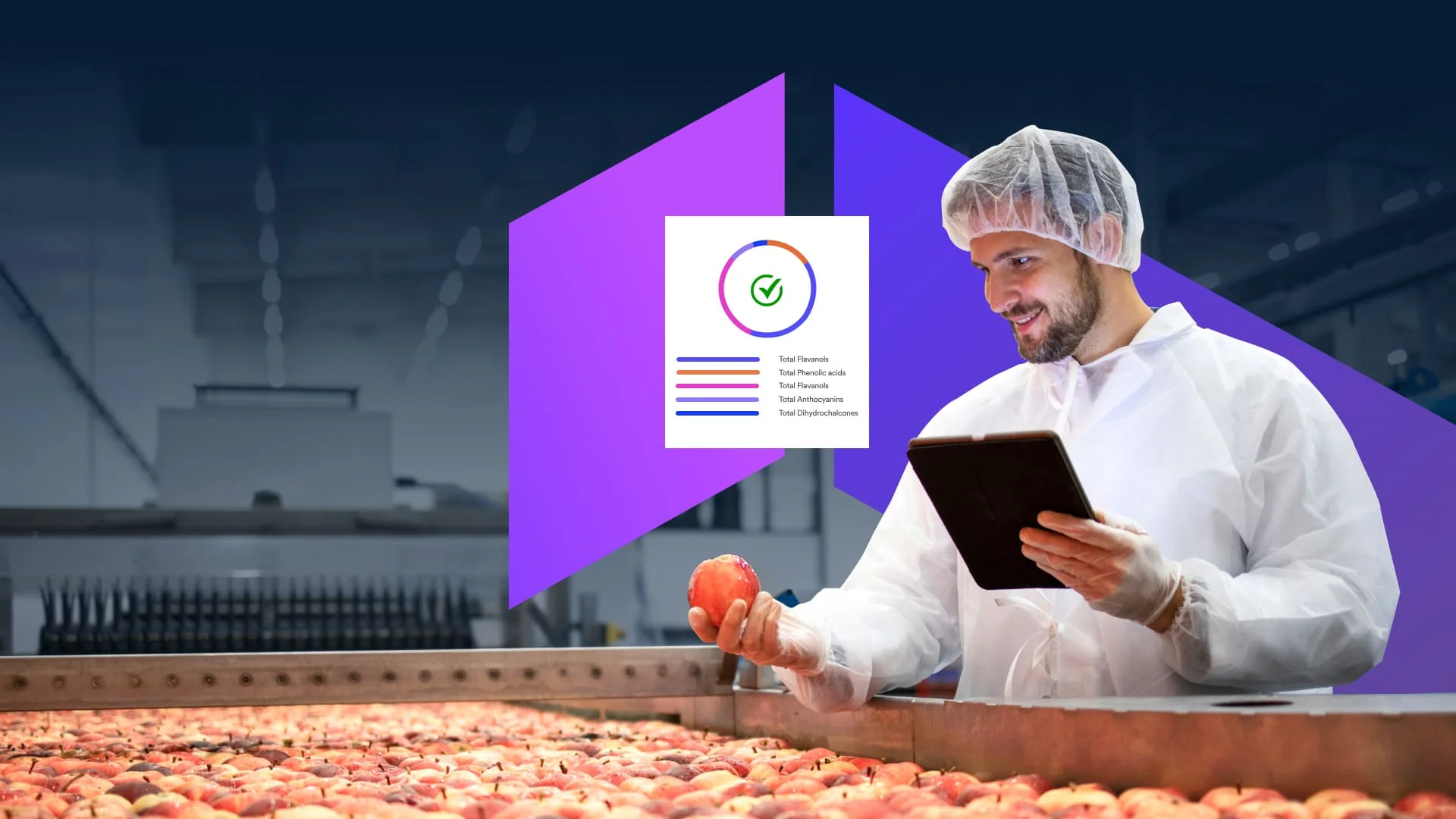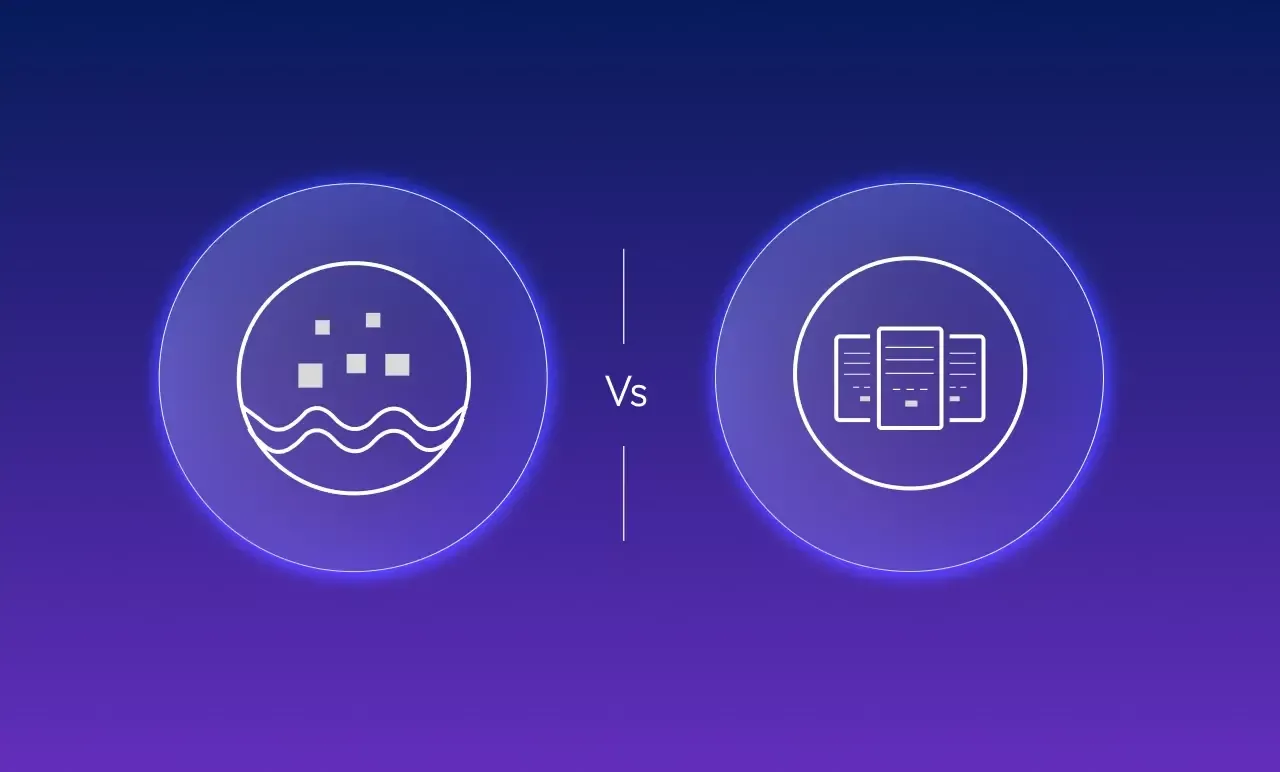Data Storage Decoded: Data Warehouse vs Data Lake Explained
Benefits of digital transformation in the food and beverage industry
In a rapidly changing food and beverage landscape, evolving consumer preferences and stricter government regulations, emphasize the need for more resilient business models. An ever-expanding global population and an increased demand for food call for more efficient safety compliance, eliminating vulnerabilities in supply chains.
Navigating these complexities requires a proactive approach to stay relevant in a technologically advancing world, a concern that can be addressed by emerging technologies like artificial intelligence (AI), Internet of Things (IoT), and blockchain that are already making an impact in the industry.
Implementing digital transformation in the food industry is critical for long-term success. In this regard, the benefit of utilizing modern cross-functional cloud software solutions is notable for enterprises contemplating the adoption of current software to enhance efficiency across all functions.
Streamlined Functions and Efficient Asset Management
The primary step in improving operations efficiency requires the replacement of outdated and analog processes with seamlessly integrated technology to mitigate inaccuracies, delays, and data losses associated with manual record-keeping.
Tools like Enterprise resource planning (ERP) platforms utilize IoT devices like smart sensors, scales, meters, and thermometers to automatically capture readings crucial for monitoring product quality and process efficiency. Beyond accuracy, these integrations accelerate processes by unlocking features, expiration management tools, automated compliance checks, and end-to-end traceability functions that facilitate swift contamination isolation and expedite the recall process.
Collectively, these measures contribute to eliminating human error that could compromise data integrity and swiftly import results to the central database in real-time. This ensures that decisions can be made based on the most current and accurate facts and figures and that every product leaving the production lines is impeccably fit for consumption.

Agile Food System
Adapting to evolving consumer demands is a constant for food manufacturers. Quick adjustments to product packaging and recipes and introducing new products to the market are imperative.
Digital recipe management tools are pivotal in enhancing this adaptability, enabling brands to cut production costs while efficiently managing operations with multiple streams and products. This digital approach ensures a more streamlined and cost-effective response to potential product changes, ultimately contributing to increased efficiency in the manufacturing process.
Enhanced Production Flexibility
Digital transformation plays a pivotal role in amplifying production flexibility within the food industry. This heightened flexibility and integration empower companies to unleash creativity, swiftly launch new products, and expedite their journey to market. Implementing recipe control systems emerges as a valuable asset, facilitating efficient experimentation with new products.
Increased revenue
Embracing digital transformation with analytical tools and strategic planning functionalities is pivotal for informed decision-making. These technologies critically assess your operations, unveiling opportunities for improvement, sustaining a healthy bottom line, and fostering future growth.
Platforms utilizing data analytics offer insights into efficiency and profitability, highlighting issues hindering peak performance in current processes. Easy accessibility to financial data informs decisions on product lines, guiding choices on focus and elimination.
This functionality extends to modeling potential changes like relocating a warehouse, expanding service to a new customer outside the usual geographic range, accurately calculating cost-to-serve for new customers, and thoroughly testing growth ideas before implementation, thus helping maximize revenue and profit.

Enhanced Safety in the Production Environment
The digital transformation of the food industry extends beyond customer benefits to prioritize the workers' safety in the production process. Food and beverage facilities operate as bustling and potentially hazardous environments, demanding robust measures to safeguard staff. Digital tools play a crucial role in fostering a secure working environment by streamlining and automating food safety protocols, thus enabling workers to perform their tasks more efficiently and with extraordinary safety measures.
Improved Customer Experience
In a rapidly evolving market saturated with choices, brands strive to transcend products and services, turning them into immersive experiences. Equipping businesses with the right technology and adept user support can transform product distribution and delivery, empowering business owners to gain deeper insights into customer preferences exceeding expectations.
Incorporating cutting-edge quality management and traceability software ensures proactive forecasting and personalization to create a seamless omnichannel experience. This boosts income and enhances a brand's market reputation, creating a more satisfying and positive customer experience.
Similarly, a consolidated supply chain and empowered support teams with access to user data can aid in faster query resolution in minutes instead of hours of sifting through data on outdated, non-connected systems. This streamlined process translates to a hassle-free experience in serving the user.
Precision in Supply and Demand Forecasting
Efficient food processing operations heavily depend on well-managed inventory, involving significant investments in procurement and storage, given the perishable nature of products. Anticipating demand in advance ensures streamlined cash flow and mitigates risks associated with excess or insufficient inventory. Leveraging software with advanced data analytics empowers businesses to proactively predict demand and seasonal fluctuations, aligning storage capacity with anticipated needs. This ensures streamlined operations and minimizes the risks associated with inventory management.

Mitigating Equipment Breakdown Risks
The integration of intelligent sensors has proven revolutionary across various industries, with the food and beverage sector no exception. These cutting-edge devices play a crucial role in early anomaly detection within equipment, enabling companies to prolong the life cycle of machines and prevent downtime.
Furthermore, in supply chains dealing with perishable products and ingredients, maintaining precise temperature and humidity levels is paramount for production. Smart sensors excel in identifying deviations, ensuring optimal conditions, and preserving the freshness of goods.
Optimized Energy Efficiency
The advent of digital transformation has empowered food companies to capture real-time energy data seamlessly. By meticulously tracking this data, companies can pinpoint processes that exceed normal energy consumption levels and identify equipment causing energy spikes. This precise recording and monitoring can aid in significantly reduced energy consumption, contributing to enhanced profitability and a notable reduction in environmental impact.
The benefits of digital transformation in the food and beverage industry are substantial and far-reaching, positioning businesses for long-term success in a dynamic and evolving landscape. Adopting emerging technologies by growing and established companies can address the relentless challenges and aid in smoother and more efficient growth outcomes.
Email us or Talk to us at +91-98367-81929 or Simply Contact Us through the website.
Let's Connect







